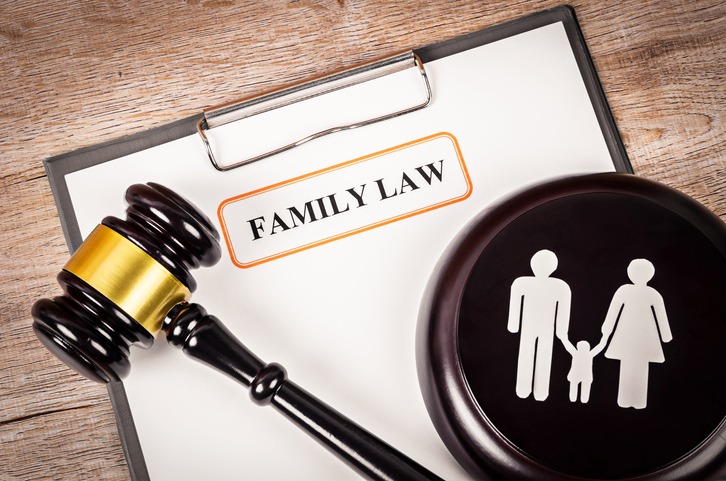No More Mistakes with Flour Mill Machine Manufacturer
Mar 11 2023

Being a single parent comes with more than emotional and financial challenges—it often means navigating family law without a co-parent by your side.
Whether you're recently separated, going through a custody dispute, or simply trying to understand your rights, this post is here to help.
We’ll break down what family law means for single parents in Australia, how to protect your rights, and what legal support is available when things get complicated.
Family law covers everything from parenting arrangements to child support—but knowing how to access those rights isn’t always clear.
You have a right to seek formal parenting orders, negotiate custody, and ensure child support is fair and enforceable.
Legal help is available, even if you're on a tight budget—there are community legal centres, mediation services, and payment plans.
Navigating the system doesn’t have to be overwhelming—knowing your options early helps avoid disputes later.
Want to dive deeper? Keep reading for practical tips, legal tools, and support services tailored to single parents.
After separation or divorce, deciding where your child lives and how parenting responsibilities are shared is often the biggest concern.
Under Australian law:
Both parents have equal shared parental responsibility unless a court orders otherwise.
This doesn't automatically mean equal time, but rather joint input on major decisions like education, health, and religion.
If you and your ex-partner can’t agree, you can:
Negotiate a Parenting Plan (a written agreement).
Apply for Consent Orders to make it legally binding.
Seek Family Dispute Resolution (FDR) before going to court.
Pro Tip:
A Parenting Plan is flexible and quick to arrange—but it’s not enforceable in court. If you need certainty, Consent Orders are the way to go.
Child support is managed through Services Australia (Child Support Agency). If you're the primary carer:
You can apply for child support assessments to ensure your ex contributes based on income and care percentage.
Payments can be made privately or through government collection services.
You may also qualify for Family Tax Benefits and other Centrelink support depending on your income.
Did You Know?
You don’t have to agree on child support privately—Services Australia can calculate, monitor, and collect it on your behalf.
In cases involving family violence, neglect, or serious disagreements, the court can grant sole parental responsibility to one parent.
This gives you the legal right to:
Make all major decisions alone.
Limit or supervise the other parent’s contact, if necessary.
Protect your child’s wellbeing through Intervention Orders if abuse is involved.
But it’s not automatic. You’ll need to provide evidence and possibly attend a hearing. Legal advice is essential here.
You’re not expected to become a legal expert overnight. There are many services that support single parents navigating family law, including:
Legal Aid (if eligible based on income).
Community Legal Centres offering free advice.
Private family lawyers with payment plans or fixed fees.
Family Relationship Centres for mediation and parenting plans.
Many of these services can help you resolve matters without going to court, saving you time, money, and stress.
You’ve recently separated. Your ex has moved out, and you’re unsure how to sort parenting schedules and get financial support. You're overwhelmed, and communication with your ex is strained.
Who decides what school your child goes to now?
How do you ensure your ex contributes financially?
What if they cancel visits last-minute or don’t show up?
1. Create a Written Parenting Plan: Write down an agreement (even informally at first) covering weekly schedules, holidays, school pickups, and decision-making responsibilities.
2. Apply for a Child Support Assessment: Use Services Australia to determine how much your ex should pay. This avoids disputes and keeps things fair.
3. Use a Communication App: Apps like OurFamilyWizard or Divvito help you track conversations, changes, and requests—helpful for both clarity and legal documentation.
4. Seek Mediation Early: If you can’t agree on arrangements, Family Dispute Resolution is often required before court—and it’s usually quicker and less stressful.
Formalising plans and using structured communication reduces tension and misunderstandings. It gives you confidence that your rights (and your child’s best interests) are being respected.
Need help creating a Parenting Plan or getting legal support? Reach out to a family lawyer or Family Relationship Centre near you.
A: Only a court can legally restrict contact. If there are safety concerns, you can apply for supervised contact or seek an Intervention Order. Unreliability (like last-minute cancellations) can be documented and raised during mediation or legal proceedings.
A: Not automatically. Even if your child lives with you 100% of the time, the law assumes both parents share decision-making unless there’s a court order stating otherwise.
A: Services Australia can enforce payments through deductions from wages, tax returns, or even travel restrictions. Don’t rely on informal arrangements if they’re not working—get it documented.
A: Yes. Family law recognises the role of extended family. If it’s in the child’s best interest, the court may allow visits or even care arrangements for grandparents.
Being a single parent isn’t easy—but the law is there to protect your rights and your child’s wellbeing. Whether you're figuring out parenting plans, chasing child support, or seeking a safer environment, you don’t have to face it alone.
Support services, legal pathways, and flexible options exist to help you move forward with confidence.
If you’re unsure where to start, reach out to a local family lawyer or mediation centre—they can walk you through your options.
Social Media Marketing Strategies for Beginners
Mar 14 2023
(0) Comments